The Ultimate Interview Guide for Tech Professionals
Preparing for a tech interview can feel daunting, no matter your experience level. Whether you’re an entry-level candidate, mid-career professional, or C-suite executive, interviews in the technology sector often demand a mix of technical knowledge, strategic thinking, and strong interpersonal skills.
This guide brings together everything you need to know to confidently approach your next opportunity, from the types of interviews you might encounter to video interview preparation and smart questions to ask employers.
What to Expect in a Tech Interview?
Tech roles are known for their structured and often multi-stage interview processes. Employers use these to evaluate not just what you know, but how you think, collaborate, and approach challenges.
Typically, interviews assess three key areas:
- Your technical or functional expertise relevant to the role
- Your soft skills, such as communication, leadership, and teamwork
- Your fit with the company culture and values
Depending on the role and seniority, you might encounter a combination of the following interview types.
Phone Interviews
A phone interview is often your first introduction to a prospective employer. It helps them verify the basics (your experience, motivations, and communication style) before deciding whether to progress you further.
Keep your tone professional and upbeat. Speak clearly, listen actively, and answer questions concisely. Prepare by reviewing your CV and key achievements so you can discuss them confidently without sounding rehearsed.
Panel Interviews
Panel interviews are common across many tech disciplines, from software engineering to IT leadership and project management. They allow multiple stakeholders to assess your skills, ensuring a balanced and fair evaluation.
One interviewer typically leads the discussion while others focus on specific areas, such as technical depth, leadership qualities, or team fit. To prepare, research the company’s team structure and, if possible, the panel members. Engage with each person equally, maintain eye contact, and show curiosity through well-considered questions.
Case Interviews
Some organisations include case-style interviews to assess how you approach real-world challenges. These might involve analysing a business scenario, designing a solution, or outlining a process improvement.
Case interviews are less about finding one “right” answer and more about revealing your thought process, logic, and creativity. Talk through your reasoning clearly and ask clarifying questions where appropriate.
If you’re in a senior or strategic role, you may be asked to discuss leadership decisions, change management, or stakeholder alignment instead of hands-on technical work.
Technical or Task-Based Interviews
Some (but not all) tech interviews include a practical component designed to evaluate your domain-specific skills. For developers, this might involve coding challenges; for data professionals, a case study or dashboard task; and for non-technical roles, perhaps a presentation, problem-solving exercise, or scenario simulation.
Treat these as an opportunity to demonstrate how you think. Explain your process out loud, even if you’re unsure of the final answer. If a coding task is involved, focus on clarity, documentation, and logical reasoning over speed.
For leadership and management roles, the “technical” component may instead involve discussing strategy, resource allocation, or technology adoption decisions.
Competency & Behavioural Interviews
Every candidate, regardless of technical expertise, will likely face behavioural questions. These assess how you communicate, collaborate, and handle challenges.
Expect prompts such as:
- “Tell me about a time you led a project under pressure.”
- “Describe a situation where you had to manage conflicting priorities.”
- “How do you handle feedback or conflict within a team?”
Employers use these to predict how you’ll perform in real work environments. The best way to respond is by using the STAR framework.
What is the STAR Method?
The
STAR method helps you structure job interview answers clearly and concisely:
Situation: Describe the context or challenge.
Task: Explain your objective or responsibility.
Action: Outline what you did and why.
Result: Share the outcome, ideally with measurable impact.
For example: “When leading a cloud migration project (Situation), I was responsible for managing a cross-functional team and ensuring zero downtime (Task). I established a phased rollout plan and weekly check-ins (Action), which resulted in successful delivery ahead of schedule and reduced operational costs by 15% (Result).”
To feel confident using the STAR method, preparation is key. Here’s how we suggest prepping:
- Start by listing 4–6 key career moments that highlight different skills, for example, leadership, problem-solving, communication, innovation, or stakeholder management.
- Then, for each example, write out short notes under each STAR heading: what was the Situation, what were your Tasks, what Actions did you take, and what was the Result.
- Practise saying these out loud until they sound natural rather than memorised. You can also record yourself on video to check tone and pacing or ask a friend, recruiter, or mentor to do a mock interview.
The goal isn’t to recite word-for-word answers but to have a bank of structured stories ready that you can adapt to different behavioural questions confidently and clearly.
How to Prepare for a Video Interview
Video interviews have become standard across the tech industry, offering flexibility for both employers and candidates. While convenient, they can introduce new challenges, so preparation is key.
Check Your Tech
Ensure your technology supports a smooth experience. You’ll need:
- A reliable laptop, tablet, or smartphone
- A working webcam and microphone
- A stable internet connection
- Access to the chosen platform (Zoom, Teams, or Google Meet)
Run a quick test call to confirm everything is functioning properly. Poor audio or video can distract from what you’re saying, and that’s what should shine through.
Set Up Your Space
Choose a quiet, tidy location with minimal background noise or distractions. Sit facing natural light, or use a lamp if needed, and avoid sitting with a bright window behind you.
Keep water, your CV, and a notepad close by, but avoid reading from notes during the conversation. Your aim is to appear prepared, not scripted.
Dress Professionally
Even if the company has a casual culture, dress on the side of professionalism. Dressing as you would for an in-person meeting helps you feel more confident and signals respect for the process.
Communicate Effectively
Look directly at the camera when speaking to simulate eye contact. Pause briefly after each question to account for any audio lag, and nod or smile to show engagement. Remember that enthusiasm and clarity often leave a stronger impression than perfectly worded answers.
Smart Questions to Ask in Your Interview
Interviews are a two-way opportunity to determine mutual fit. Asking thoughtful questions helps you gather valuable insight while showing genuine curiosity and confidence.
Strategic Questions
What are the company’s top priorities over the next 12 months?
Understand where the business is heading and how your role fits into that vision.
What challenges is the team currently focused on solving?
Demonstrates your strategic mindset and readiness to contribute meaningfully.
How does this role contribute to the company’s long-term goals?
Helps you identify whether the position offers stability and growth potential.
Culture & Leadership Questions
How would you describe the company culture, particularly for remote or hybrid teams?
Culture plays a huge role in satisfaction and retention; this gives you insight into how collaboration works day-to-day.
What professional development or upskilling opportunities are available?
Shows your commitment to learning and staying relevant in a fast-changing industry.
How does the company support communication and collaboration across different locations or time zones?
A great question for distributed teams or national organisations.
You Can Do This!
Whether you’re preparing for your first junior interview or stepping into an executive leadership role, the principles of a great tech interview remain the same: preparation, professionalism, and authenticity.
Take time to understand the company, practise articulating your experiences, and approach each conversation as a two-way discussion, one that helps you determine whether the opportunity aligns with your goals and values.
At Emanate Technology, we work closely with Australia’s leading tech employers to connect talented professionals with roles that fit both their skills and ambitions. Our teams in
Adelaide,
Brisbane,
Canberra, and
Melbourne are here to guide you through every stage of your career journey, from interview prep to placement and beyond.
If you’re ready to explore your next opportunity,
browse our current tech opportunities or
get in touch with Emanate Technology today.






